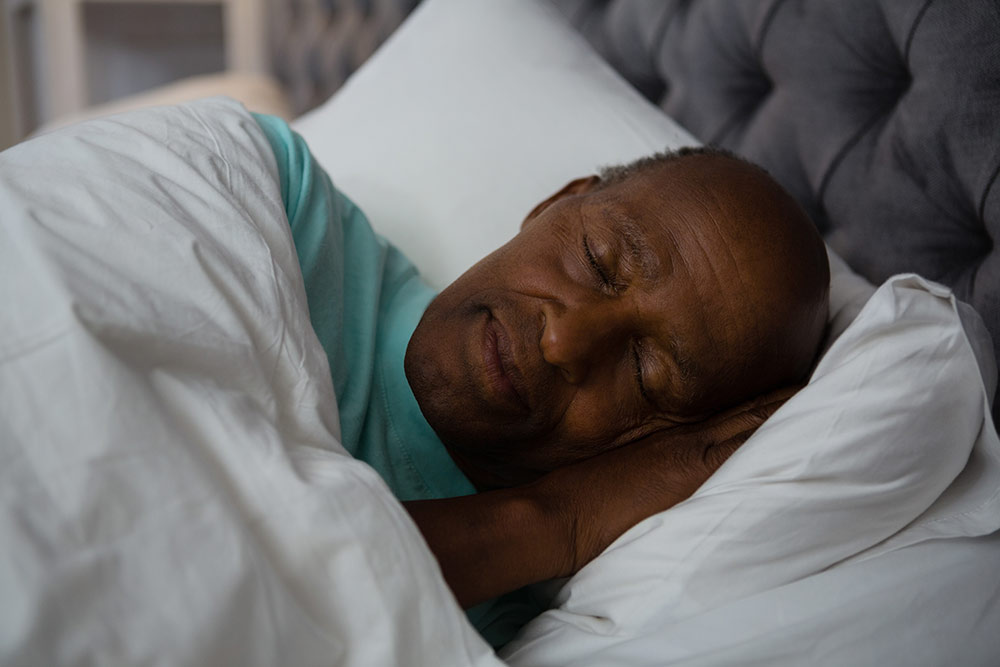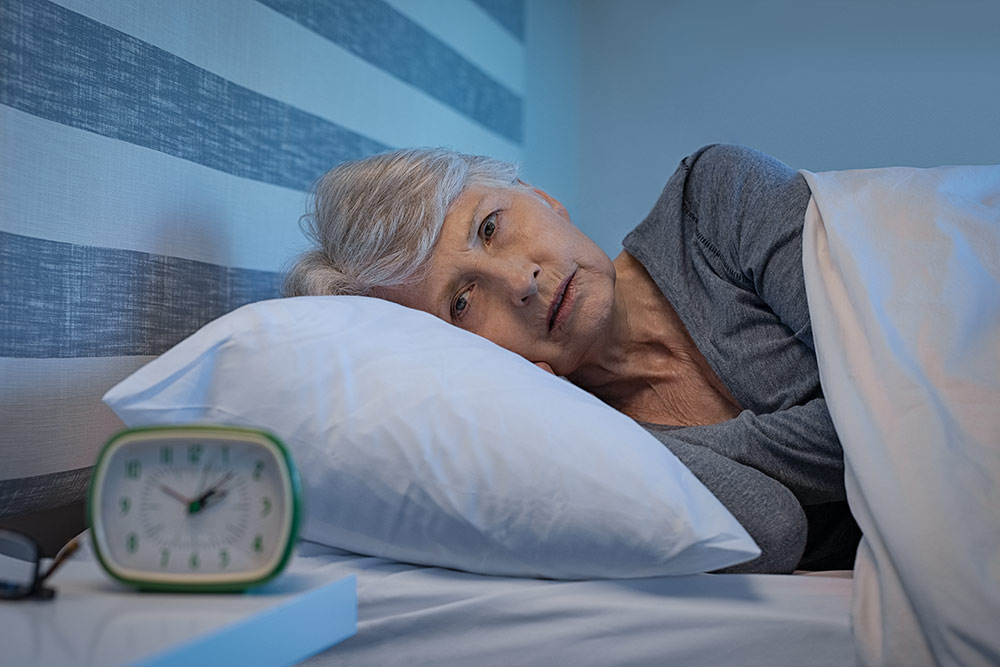If you have kids or a full-time job or both, you probably haven’t had a full seven to nine hours of sleep in years. Add to that the toxic workplace and financial troubles, and you have the perfect recipe for a sleep-deprived adult.
However, as you approach seniorhood, you should be able to let go of these bad sleeping habits and adopt a healthy one. Sleep deprivation for a senior like you can lead to terrible consequences, such as:
- Memory and concentration problems
- Decreased immune system function
- Increased risk of developing depression, anxiety, and memory problems.
- Weight problems and heart disease
- Excessive tiredness during the day, which can lead to fall accidents.
Further, sudden sleep disruptions and insomnia are not a normal part of aging. So, if you brought your younger insomniac self with you in your independent living community, then you need to overcome it quickly to improve your overall health.
Fortunately, there are numerous ways to battle sleep problems in a healthy and holistic way!
5 Healthy Ways to Improve Your Sleep Quality
Normally, adults aged 60 and above experience changes in their sleeping pattern and body clock, like sleeping and waking up early. They should also feel well-rested and ready to take on the world when they wake up in the morning. If not, then you are not getting the right amount of sleep that your body needs.
So, here are some tips on how you can resolve your sleeping problems and achieve a good night’s sleep every night.
1. Determine the Cause of Your Sleeping Problem
An underlying health condition can cause a senior to experience sleeping problems at night. So, if your insomnia has been happening for a while now, then consider going to a specialist first.
Seeing a doctor allows you to either rule out a possible disease or get an early diagnosis of an underlying illness. The latter is still a good outcome because early detection lets you get on with a treatment plan early on.
Some of the most common diseases that can cause sleeping problems are:
- Heart and lung conditions that affect breathing.
- Heartburn and other illnesses that causes intense pains
- Urinary problems
- Alzheimer’s or Parkinson’s disease
- Depression, anxiety, and chronic stress
- Sleep disorders like sleep apnea, insomnia, and sleep breathing problems.
- REM sleep behavior disorder, which can disrupt a senior’s sleep.
Your sleeping troubles can also be due to the medication you are taking. Almost 40% of seniors 65 and above currently take at least five different kinds of prescription drugs. Disclose the medicines you consume to your GP, so they will know if that’s what’s causing your sleep problems.
2. Proper Diet and Exercise
If there’s no underlying medical cause, then it is probably because of your unhealthy lifestyle habits. For instance, a senior spending his/her retirement in an independent living community has plenty of time to take a nap and lead a sedentary lifestyle.
So if you feel like you’re spending too much time on the couch and not enough in the outdoor area of your community, then it’s time to change your routine!
Start by moving your body and incorporating regular physical activity into your schedule. Research has proven many times how exercise could enhance your sleep and overall health. It stimulates alertness and releases adrenaline hormones, which can help keep your energy up all day. Once the adrenaline recedes, your brain will coax your body into a deep and satisfying slumber.
Proper diet, ones without refined carbs and added sugars, can also help you fall asleep during nighttime. Just remember to schedule your meal times two to three hours before you go to sleep.

3. Create a Nighttime Routine
A routine will help you get used to the same sleeping schedule every night. Thus, forcing your body to wake up at the same time every day.
Typically, seniors should go to bed around 7 to 9 pm and start their day at 4 to 6 am. But you can adjust it based on your own terms; just don’t let it go as far as past 11 pm. Also, you should get at least seven to nine hours of sleep every day.
Here are some tips on how to get used to a sleeping schedule and how to improve your sleeping habits:
- Set a reminder or alarm so you can easily wake up at the same time every day. Also, you can ask the staff in your independent living community to help you with this set-up.
- Don’t make sudden changes in your sleeping time.
- Train your body to associate sleep at the sight of your bedroom and the feel of your bed. You can do this by using the bedroom for sleeping purposes only.
4. Avoid Anything that Discourages Sleep
Remove and avoid anything that distracts you from getting a good night’s rest. This includes eating a heavy meal before bed, drinking coffee late in the day, or eating sweets. Other activities to avoid before bedtime are:
- Exercising or strenuous physical activity.
- Doing work or business-related activities.
- Napping late in the day.
- Drinking plenty of water right before bed.
- Drinking any alcoholic beverage or smoking a cigarette.
These activities will only activate your body and mind, causing you to stay up all night and have a hard time sleeping.
5. Set a Healthy Sleeping Environment
Another way to improve your sleep quality is to create an environment that promotes sleep. This includes using a night light or dim lights, refraining from using any gadgets an hour before bed, and doing something relaxing before or during bedtime like reading or meditating.
Further, make sure that the bedroom you have in your independent living community is quiet, well-temperated, and comfortable. If you have a sleeping companion who snores, you can block it out by putting on earplugs.
Also, avoid using sleeping pills or other medications for sleep. You can instead consider trying melatonin or other herbal supplements that promote sleep. Make sure to take them an hour or two before bed.

